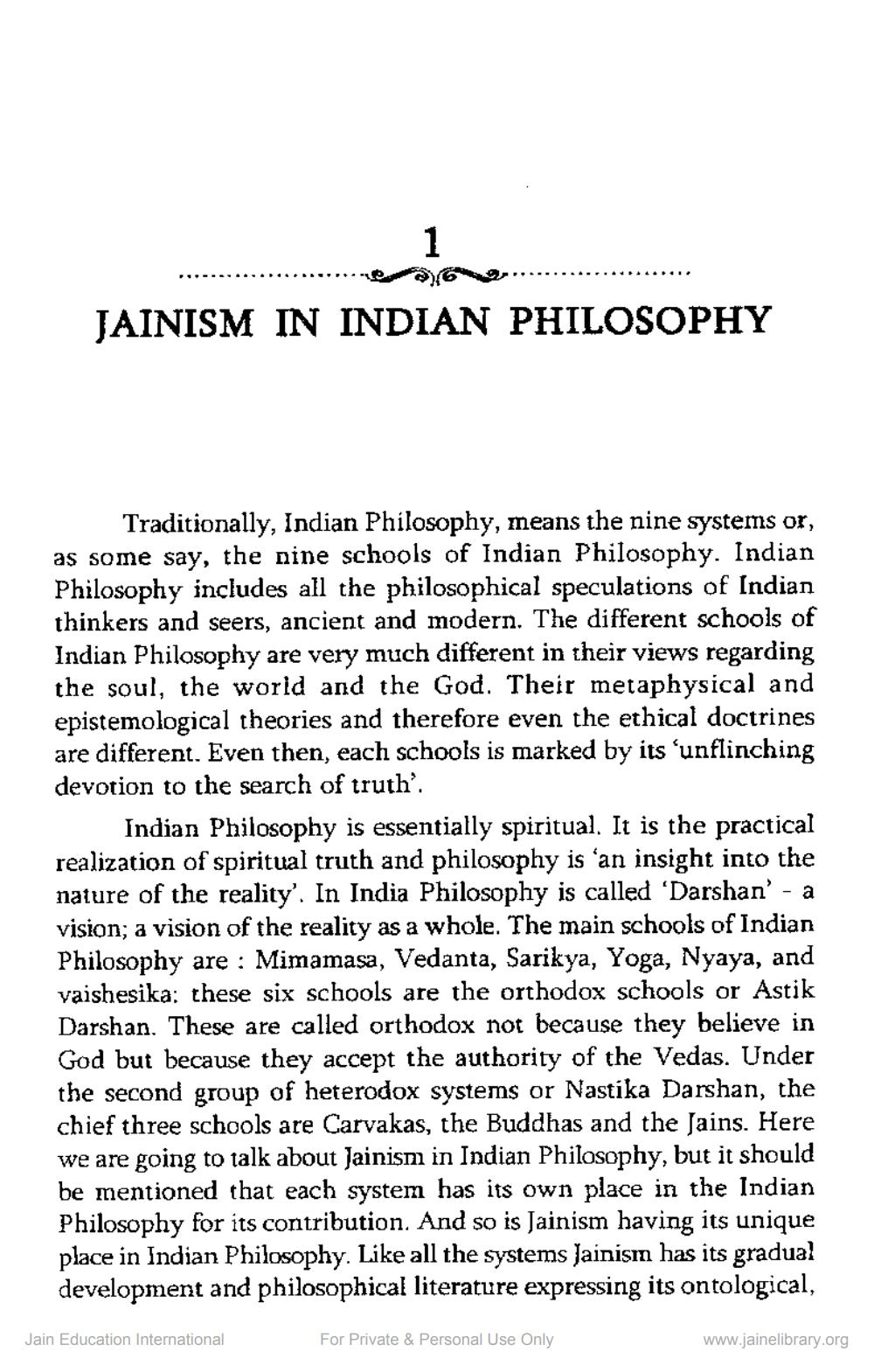Book Title: Jainism in Indian Philosophy Author(s): Hemant Shah Publisher: Z_Gems_of_Jainism_001803.pdf View full book textPage 1
________________ JAINISM IN INDIAN PHILOSOPHY Traditionally, Indian Philosophy, means the nine systems or, as some say, the nine schools of Indian Philosophy. Indian Philosophy includes all the philosophical speculations of Indian thinkers and seers, ancient and modern. The different schools of Indian Philosophy are very much different in their views regarding the soul, the world and the God. Their metaphysical and epistemological theories and therefore even the ethical doctrines are different. Even then, each schools is marked by its ‘unflinching devotion to the search of truth'. Indian Philosophy is essentially spiritual. It is the practical realization of spiritual truth and philosophy is 'an insight into the nature of the reality'. In India Philosophy is called 'Darshan' - a vision; a vision of the reality as a whole. The main schools of Indian Philosophy are : Mimamasa, Vedanta, Sarikya, Yoga, Nyaya, and vaishesika: these six schools are the orthodox schools or Astik Darshan. These are called orthodox not because they believe in God but because they accept the authority of the Vedas. Under the second group of heterodox systems or Nastika Darshan, the chief three schools are Carvakas, the Buddhas and the Jains. Here we are going to talk about Jainism in Indian Philosophy, but it should be mentioned that each system has its own place in the Indian Philosophy for its contribution. And so is Jainism having its unique place in Indian Philosophy. Like all the systems Jainism has its gradual development and philosophical literature expressing its ontological, Jain Education International For Private & Personal Use Only www.jainelibrary.orgPage Navigation
1 2 3 4 5 6 7 8 9 10
